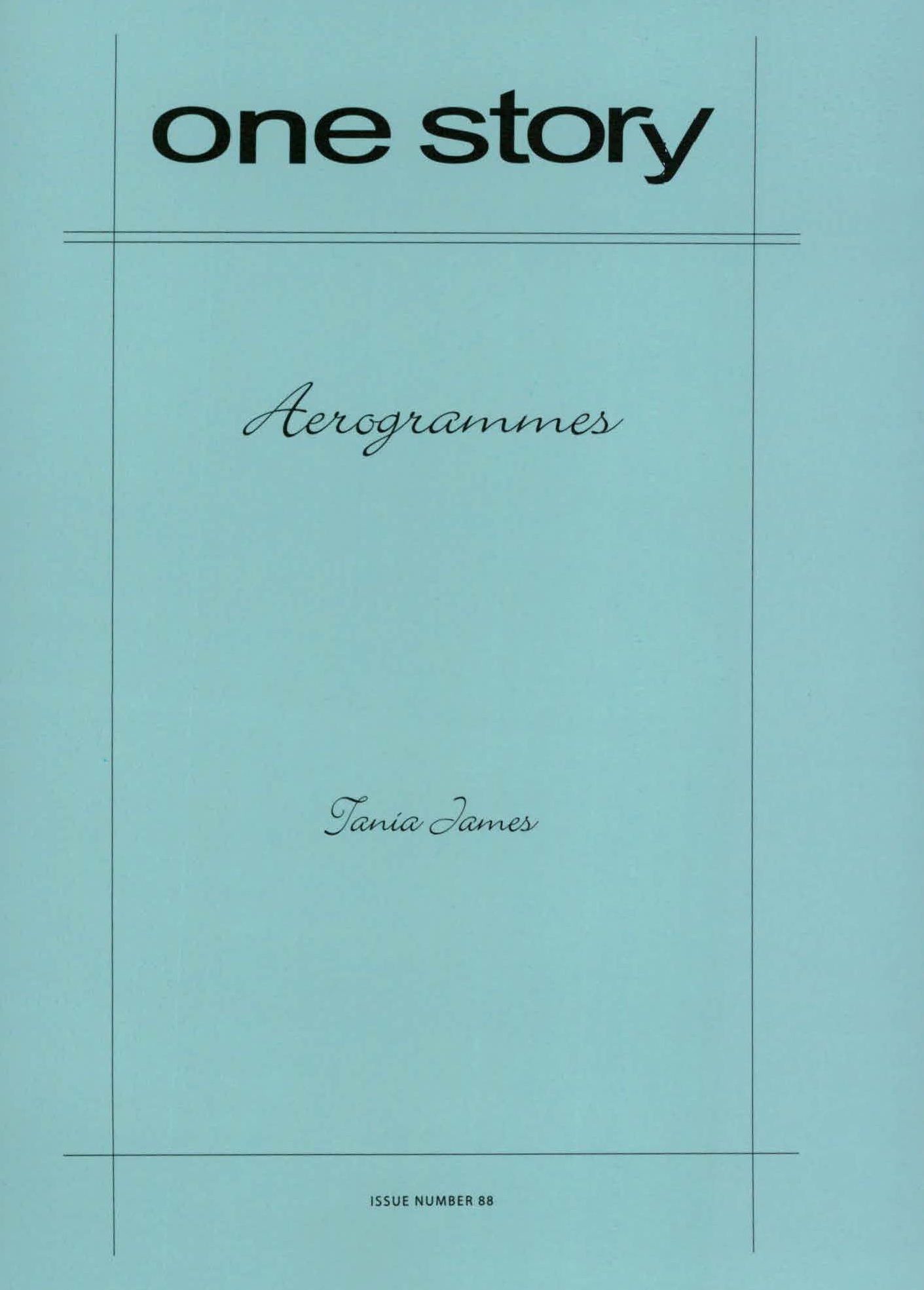
Aerogrammes
$2.50
Sold out
Excerpt
In his first week at OmniHome, Mr. Panicker divided all the nurses into the black ones, the white ones, and the man-nurse, but never called any of them by name. Knowing names, it seemed, would root him there indefinitely.
Before his arrival, Mr. Panicker’s cousin Preeti had campaigned loudly against his move to OmniHome. “These kennels are not the way of our people.”
“Whose people?” Sunit had snapped. At the time, Mr. Panicker had still been in the outpatient ward, secured to a bundle of bleating machines. “You didn’t find my dad at the bottom of the stairs like some kind of half-bent hanger—”
“It’s only temporary,” Mr. Panicker said, “until Sunit gets back from New York.”
“You hear things about these places,” Preeti said. “Nasty things. People messing with people. People shooting people. You don’t know.” She pressed her lips together to demonstrate that she, in fact, did know.
Tania James
Tania James received her B.A. in filmmaking from Harvard University and her MFA in fiction from Columbia’s School of the Arts. Her debut novel, Atlas of Unknowns, will be published by Knopf in April of 2009. Her first publication, “Aerogrammes,” was selected as one of the 100 Distinguished Stories of 2008 by Best American Short Stories. She currently lives in New York and teaches fiction at the Gotham Writer’s Workshop. For more information, visit www.taniajames.com.
Q&A by Hannah Tinti
- HT: Where did the idea for this story come from?
- TJ: The story began with the nursing home. I’ve never watched a person close to me enter a nursing home, so the territory itself was rather foreign and therefore interesting to write about. I have some vague memories of visiting a nursing home for elderly nuns when I was in grade school. For Halloween, we dressed in costume and paraded in and out of the residential rooms to provide some entertainment. (For the record: I was a self-made California Raisin, dressed in an oversized trash bag.) There was a general uneasiness, among raisins and gypsies alike, about walking through those rooms. It’s strange to discover a fairly enclosed world within the world, with its own rules, schedules, and social circles. I think the story began there, with that uneasiness.
- HT: What was the most challenging aspect of writing this story?
- TJ: There was a bit of a balancing act going on between Mr. Panicker’s life within the nursing home and Mr. Panicker’s relationship with his son. In earlier drafts, I was privileging the father/son relationship a bit too much, in order to amplify the ending. For a while, I had a pretty heavy flashback that took up too many seats in the story, so to speak. I clung to that flashback through many a draft, but one thing led to another, and I condensed it to three sentences. Which worked much better in helping me spend more time in the nursing home environment.
- HT: Most people have little experience with Aerogrammes. Can you describe them, and say what inspired you to use them in the story?
- TJ: An aerogramme is an airmail letter with low postage, that folds into its own envelope. Nowadays people can communicate across countries fairly cheaply and quickly by other means, but I have a deep affection for aerogrammes, much like Mr. Panicker, from watching my parents get them in the mail. There’s something distant about them, because of the time it takes to cross so many miles, and yet intimate about seeing a person’s handwriting. And in the story, the aerogrammes touch Mr. Panicker on a level that has to do with his past and the letters he used to receive, whereas email wouldn’t strike that same chord.
- HT: Why did you choose the setting of a nursing home for your story?
- TJ: I’m not sure that it was a choice, since I first conceived of the story with a character who finds himself in a nursing home, but believes that he, above all the other residents, does not deserve to be there. For Mr. Panicker, the nursing home is a site of abandonment, and being left behind is a particularly accute pain, not just for the cultural reasons that his cousin Preeti raises, but because of the way his wife abandoned him. So now, because of the nursing home, this old source of sadness is brought boiling up to the surface.
- HT: Do you think Mr. Panicker will stay at OmniHome?
- TJ: Looking back, I suppose I wanted to keep that ending loose, in favor of Mr. Panicker’s decision to hold on to the present moment with May and the photograph. I have my feelings about what Mr. Panicker will decide but I prefer to keep quiet, as I only feel confident about what happens from first page to last. For the time after, that’s anyone’s guess.
- HT: How long did it take you to complete this story?
- TJ: Taken together, probably about four months, spread out over the course of two years.
- HT: What is the best bit of advice about writing you have ever received?
- TJ: Early on, I was given the good, practical advice to find my readers and cling to them. I’ve been lucky to find writers whose work and advice I really treasure and respect, so there’s a nice exchange going on. And when we don’t share work, we critique the latest USWeekly.
- HT: What are you working on now?
- TJ: A novel.